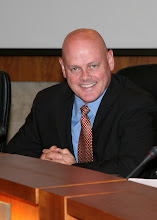Special to The Bee
PUBLISHED SUNDAY, MAY. 09, 2010
They lead our state, grow our food, heal us when we're sick and keep our neighborhoods safe. They are the alumni of the nation's largest institution of higher education, the California State University, and they are the pillars of our community and our economy.
In the Sacramento Valley alone, CSU alumni earn $5 billion more per year than they would without their CSU degrees. Together with the contributions of the CSU campuses in Sacramento and Chico, their higher earnings generate enough economic activity each year to support 45,500 jobs and more than $573 million in tax revenues for local and state governments.
Statewide, the CSU's 23 campuses and 1.96 million graduates living in California produce $70 billion in annual economic activity. That is enough to support more than 485,000 jobs – or one in every 32 jobs in California today – and almost $5 billion in tax revenues every year.
These are the conclusions of a new study of CSU's impact on the state by ICF International. As CSU prepares to celebrate its 50th anniversary, this study, scheduled to be released Monday, proves that Cal State is indeed working for California. It is preparing the educated and diverse work force businesses need to succeed and grow, and its research and partnerships with business are generating the jobs and opportunities those workers need to prosper.
At Sacramento State, for instance, the Center for Small Business has helped nearly 3,000 small businesses with free advice on topics ranging from business plans to website design. Sacramento businesses and government also rely on the university's Institute for Business Research and Consulting for research and economic analysis of the Sacramento region.
At CSU Chico, the Cleantech Innovation Center is developing energy-efficient and sustainable businesses, and the university's agricultural research is helping producers create new markets for their products.
But California could lose these benefits – and more – if it doesn't reverse the downward spiral in higher education funding. Since 1984, the state has cut general fund support for higher education nearly in half. State prisons now get a bigger share of the state budget than colleges and universities.
In just the past two years, state funding to the CSU dropped by 21 percent, forcing the universities to cut enrollment, raise student fees and lay off employees.
To reverse this downward spiral, Gov. Arnold Schwarzenegger is following through on his promise to restore the "one-time" cuts made in this year's higher education budgets. He's proposed $365.6 million more for the CSU in 2010-11 than it received in 2009-10, and he's vowed to veto any budget that doesn't include it.
As the governor unveils his May budget revision, the Legislature should join him in fulfilling the promise to restore CSU's funding. To do anything less would cause further damage to an economy just beginning to emerge from the worst recession since the Depression.
Already, the state's failure to fully fund the CSU threatens the underpinnings of the state's economic growth. The Public Policy Institute of California is projecting the state will have 1 million fewer college graduates than it needs by 2025, if it can't increase college enrollment and graduation rates.
With 92,000 graduates a year, CSU is helping to close that gap. Last year, it graduated more than half the state's new teachers. It leads California's other institutions of higher education in providing well-educated workers in the fields of health and medicine, business, engineering, agriculture, tourism and media – all critical industries accounting for more than 5 million jobs in California.
In the Sacramento Valley, CSU Chico is helping overcome the nursing shortage by training nearly 75 percent of the region's public health and registered nurses with master's and bachelor's degrees. CSU Sacramento is preparing the state's future leaders with its highly regarded Capital Fellows Program internships. And its criminal justice program is one of the largest in the nation, turning out the trained members of law enforcement who protect our community.
California's Master Plan for Higher Education made this work force development possible with its commitment to offer a high-quality, affordable college education to all. But 50 years after that pledge, the master plan is in danger of turning into a hollow promise.
We need to keep the promise alive by investing once again in the CSU. It is an investment that will pay off many times over by creating jobs, economic activity and the well-educated, diverse work force needed to ensure California will prosper and grow for the next 50 years.
© Copyright The Sacramento Bee. All rights reserved.
Bob Linscheid is the alumni member of the CSU board of trustees and the board�s vice chair. He is a graduate of CSU Chico and president of The Linscheid Co.

